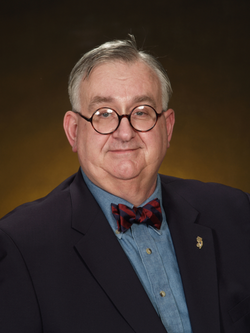As my fingers labor away on the keys of my computer, plans are underway for a really momentous event in the fire and emergency service world. Thanks to the efforts of the International Association of Fire Chiefs, a first ever Stand-Down for Firefighter Safety is planned for June 21. Over the past year each of us has watched with interest as the National Fallen Firefighter's Foundation has pursued a new direction in the battle to lower the line-of-duty death rate in the fire service world. They have brought a wide range of people together who brainstormed, created, and refined a list of lifesaving initiatives. These have been created to have a positive impact upon the line of duty death rate in our nation.
Just what is a stand-down? During my years in the military, I witnessed a number of situations where the ability of a particular unit to function effectively came into question. Rather than move on blindly, using the same methods, that unit was stood-down; taken out of service if you will.
The problems were reviewed, discussions held, and new procedures developed to address the problems. If necessary, replacement equipment was brought in and the unit brought back up to strength. Once the unit was judged to be mission-capable, they were returned to active service.
Just what is this firefighter safety stand-down? According to the International Association of Fire Chief's website, "...departments-career, volunteer and combination-are being urged to suspend all non-emergency activity and instead focus entirely on firefighter safety". We are being asked to devote a significant amount of time to the issue that seems to be beyond our control.
One of the primary problems identified during the National Fallen Firefighter's Foundation Summit in 2004 was the deeply-ingrained cultural aspect of our safety problems. Far too many people wear the danger of our business like a badge on their chests. These people think that death and injury are an inevitable part of the services we provide.
Nothing could be farther from the truth. Why do you think that the Cumberland Valley Volunteer Firemen's Association (CVVFA) took on the issue of responder safety on the highways? We did this because we were sick and tired of seeing our friends and co-workers sent to an early grave by errant and reckless motor vehicle operators.
As the parent organization of Respondersafety.com, the CVVFA was one of the early supporters of this effort. The Cumberland Valley Volunteer Firemen's Association voted unanimously to support the National Fire Service Stand Down on June 21st. It is our suggestion that you take this issue seriously and place it on the agenda for your fire, police, or EMS organization.
We would like to stress that CVVFA and Respondersafety.com are active participants in this effort. Please note that Jack Sullivan's Roadway Incident Safety Checklist and Howard Cohen's Move-Over Laws are part of an extensive training resource list to be used during the Stand Down. These are being made available from the IAFC via links to our site.
The IAFC has provided a complete recommended activity schedule for all of us to use on June 21. It can be found at: http://www.iafc.org/standdown/documents/Safety_Standdown_Schedule.pdf
The schedule lays out a serious of acts, actions, and activities which can be used to increase the level of awareness in your organization regarding highway safety. It speaks to the following issues:
- Radio announcement of the Firefighter's Stand-Down for Safety.
- A moment of silence for LODD victims.
- Health and safety standards
- Fireground safety
- Personal protective equipment (PPE)
- Apparatus and equipment checks
- Infection control issues
- Physical fitness
- Safety-related training issues
- Behavioral health issues
- Proper eating
- Recap and relax
As you might imagine, we here at Respondersafety.com want to stress the issues of operating out there on the highways and by-ways of our great nation. Please review our Highway Safety Sop's, our Stand-off Distance Card, and all of the information available of our website. If you have our either the video or DVD version of our Ten Cones of Highway Safety program, this would be a good time to conduct a revisiting of our message.
If we are to have an impact on the issue of line-of-duty deaths, we all have to do something. Remember the words of the late United States Senate Chaplain, Peter Marshall. In his last prayer to the Senate, read by a friend after his death Peter Marshall gave us a message to motivate us to do something about safety. He wrote that, "... small deeds done are better than great deeds planned."
In line with that thought, let me remind you to always be vigilant when operating on the highways and byways of your response district. If you are the leader, insure that you provide the appropriate safety gear for your troops. If you are the troops, wear you safety gear. I cannot stress the importance of wearing the right reflective vest or using the proper positioning practices. Practice safety every day of your career.
We here at Respondersafety.com are asking you to do something. Whether you actions are great or small is of no consequence. We are asking you to be remembered for having done something about safety.


